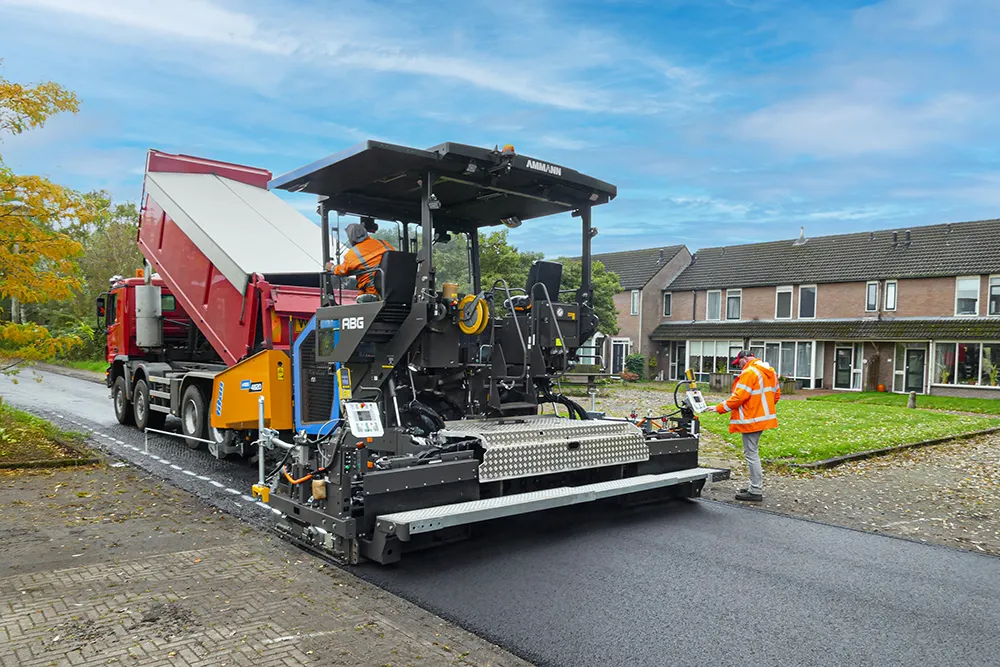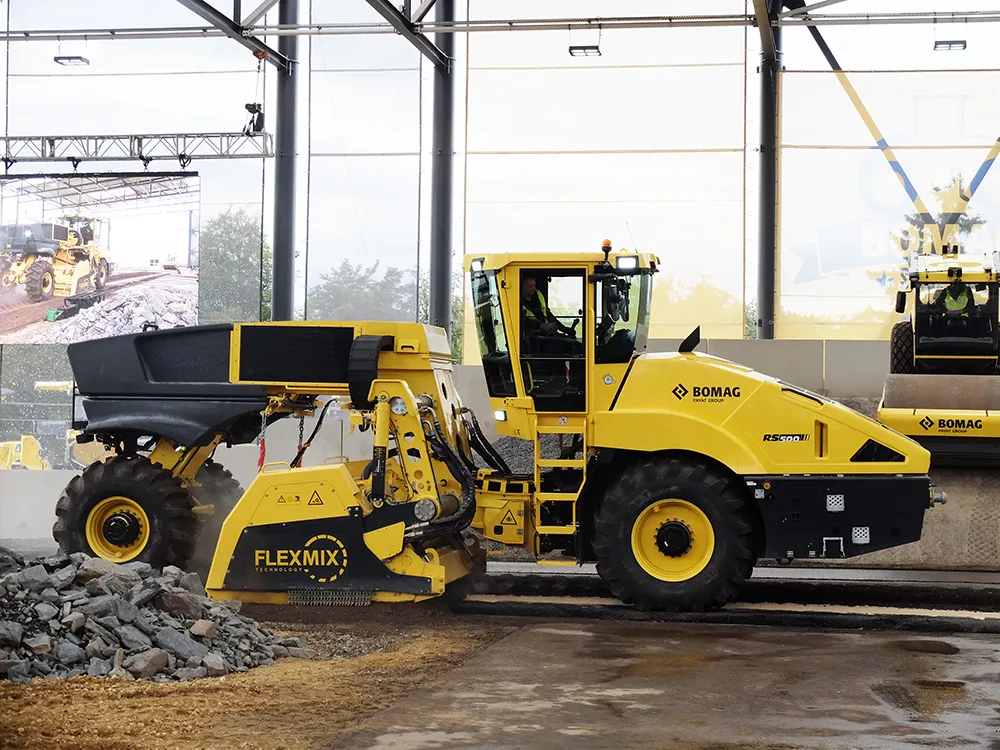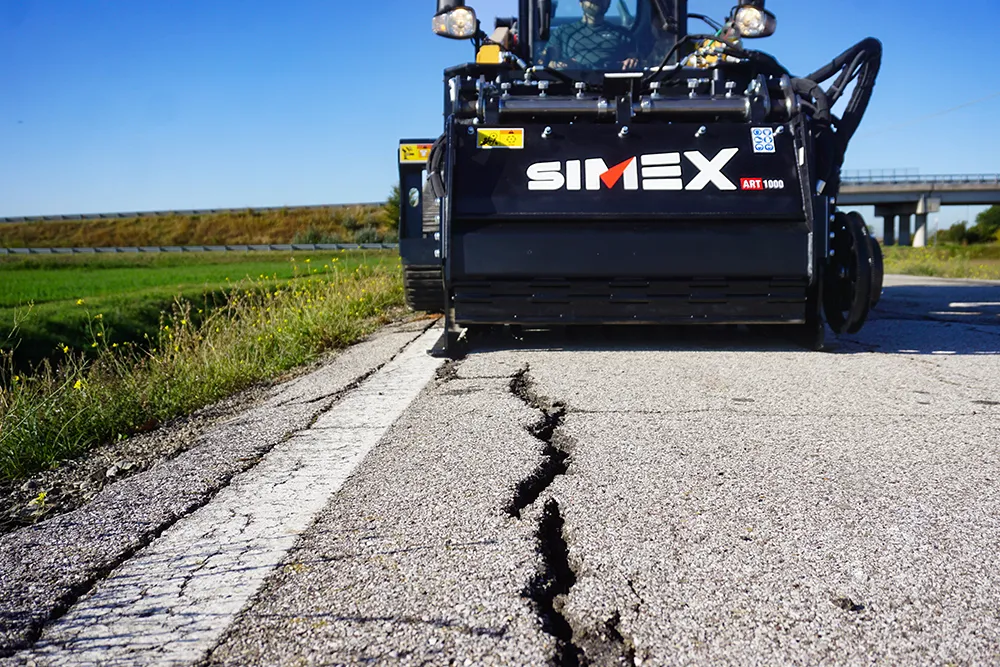March 24, 2025
Read time: 1 min

The new eABG 4820 electric drive paver from Ammann is currently the largest electric paver on the market, according to the company. It recently placed 1,200tonnes of asphalt in a day, while at the same time reducing CO2 emissions by 70%.
The paver uses a Variomatic screed and works at widths up to 6.5m. Paving output is 500tonnes/hour and maximum paving speed is 20m/minute. The hopper has a capacity of 12.7tonnes.
Ammann says that the tracked paver is a perfect match for jobsites with restrictions on sound and emissions. It has excelled on the placement of wear, binder and base courses on streets and parking lots.
Importantly, the paver has enough battery power to last an entire shift, regardless of the geography or the type of paving.









